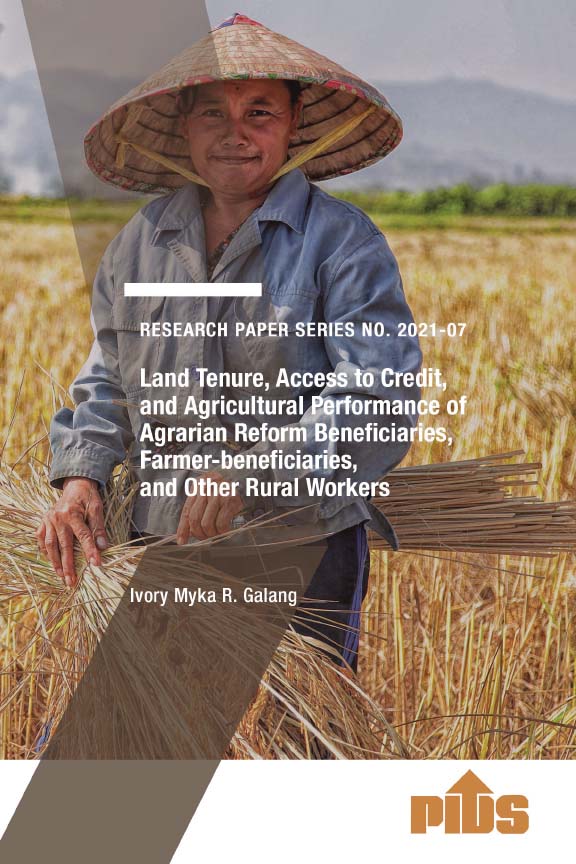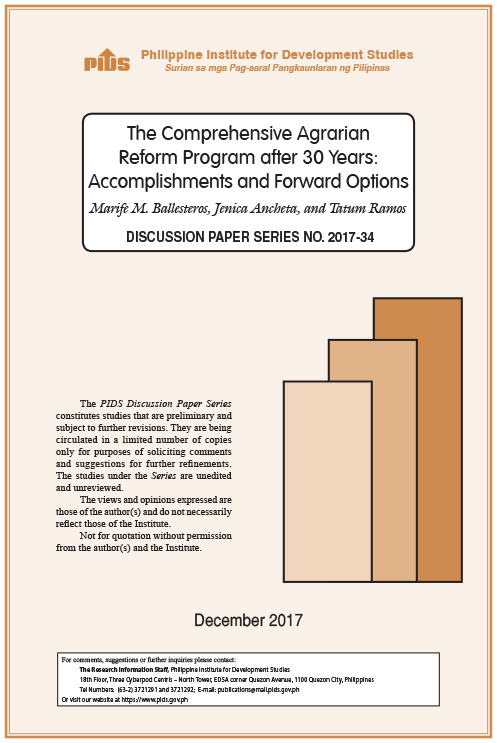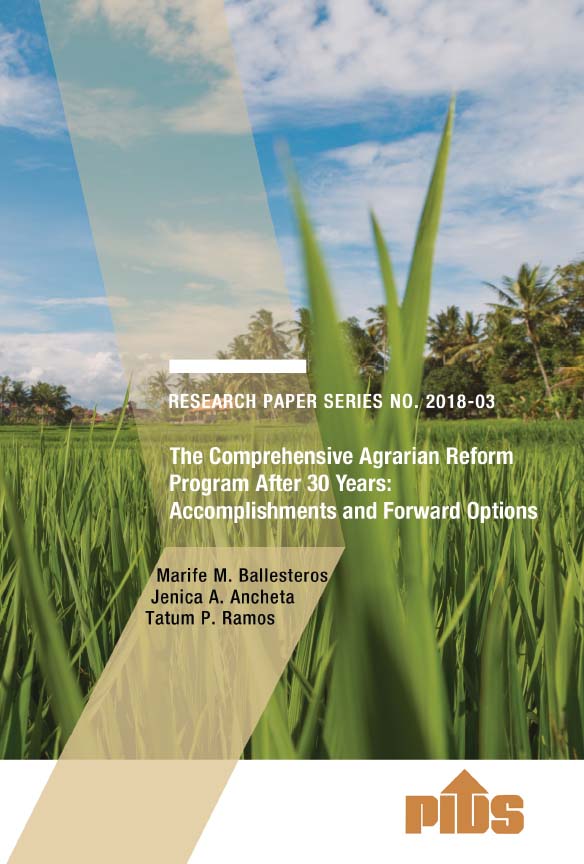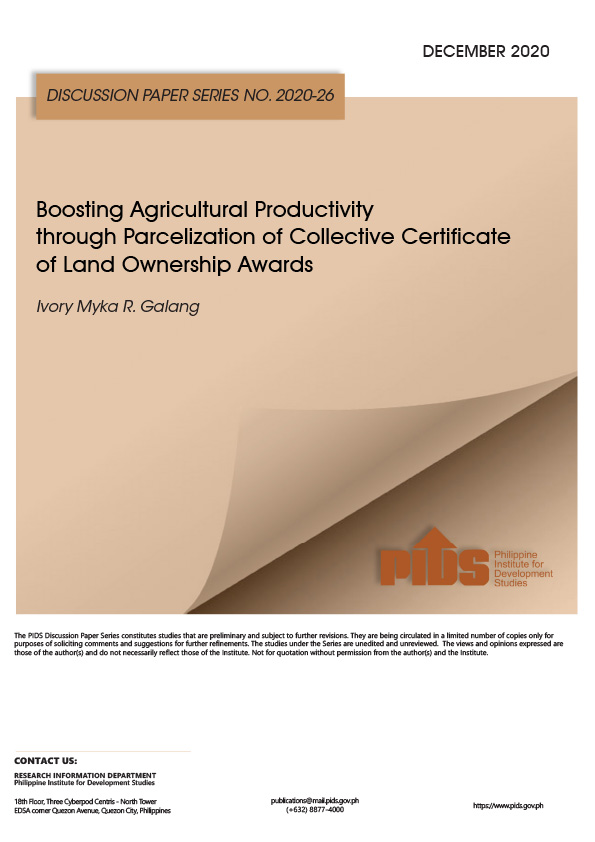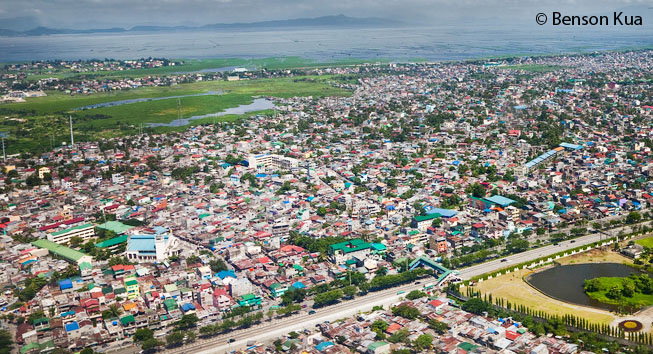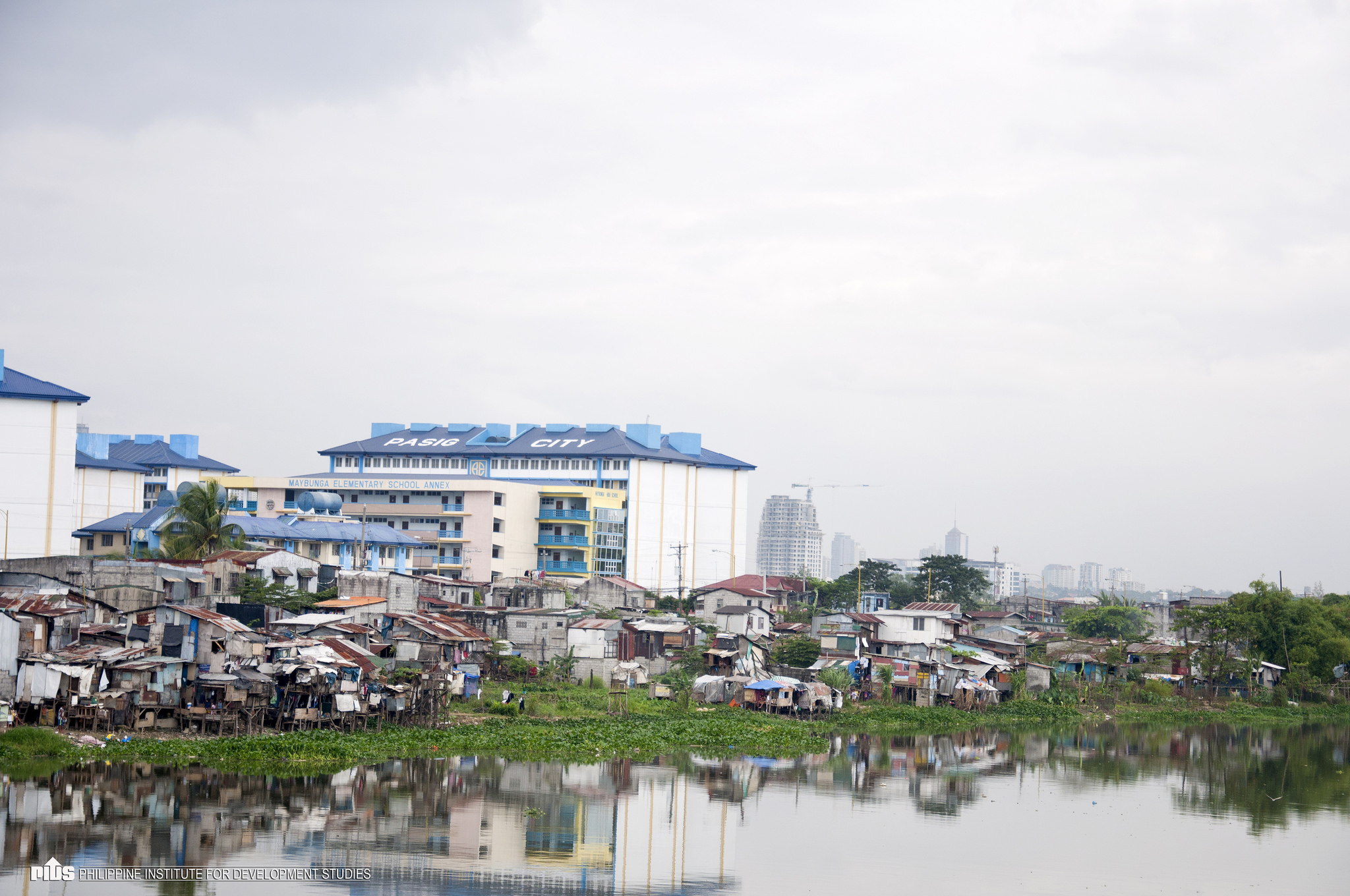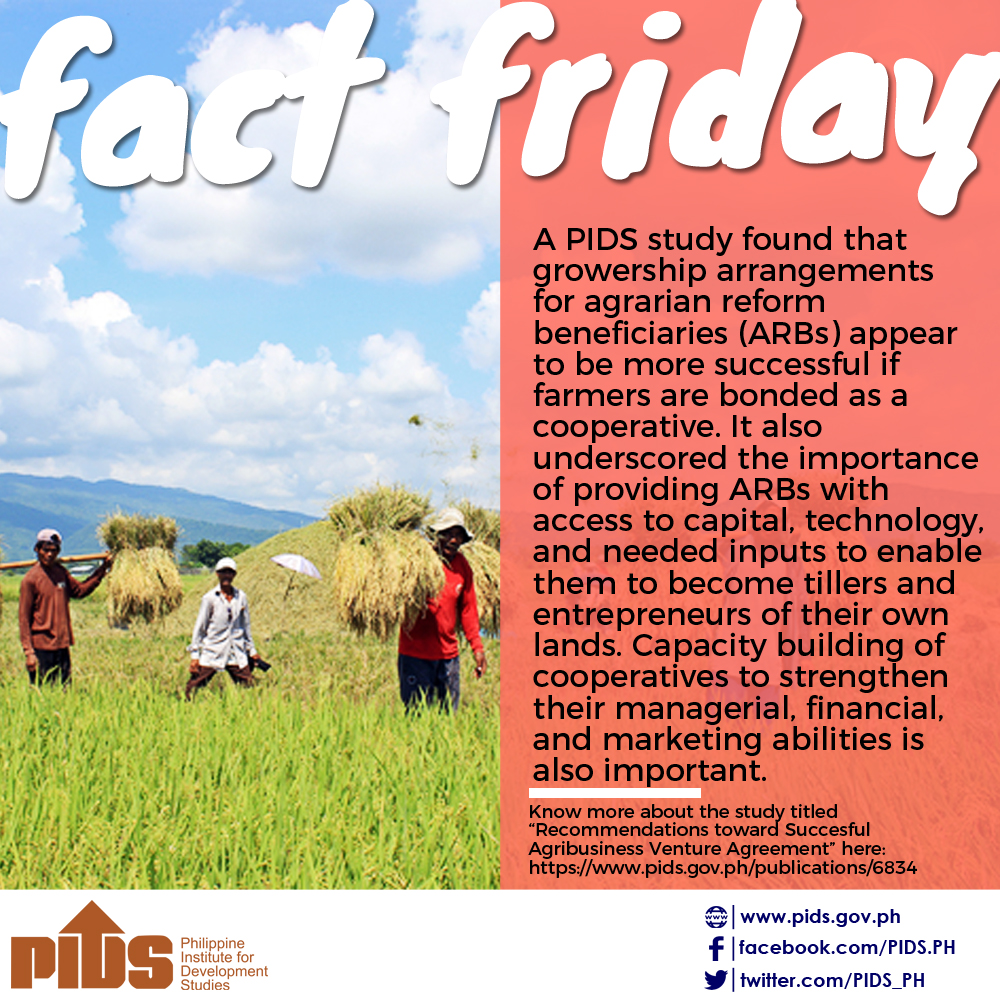Credit programs have been long viewed as salient means to develop the Philippine agriculture sector, especially small-farm agriculture. From subsidized directed, credit programs in the country have become more market-oriented in recent years. However, there have been little to no studies examining how access to credit affects the agricultural performance of poor agricultural producers, including the beneficiaries of the agrarian reform program. Using primary data from the Department of Agrarian Reform’s Baseline Survey on Project Convergence on Value Chain Enhancement for Rural Growth and Empowerment, this study analyzes the borrowing incidence among Agrarian Reform Beneficiary Organization (ARBO) member households, particularly those engaged in farm production. The results show that (1) borrowing ARBO agricultural households are better off than the nonborrowing ones in terms of housing characteristics and agricultural performance; (2) farmer associations and cooperatives are among the top sources of agricultural credit in the countryside aside from microfinance institutions; (3) and Certificate of Land Ownership Award-holding ARBO agricultural households have higher borrowing incidence than the average ARBO agricultural households. Thus, to further improve credit retailers’ lending performance and reach in the countryside, the study recommends giving leadership and management capacity training.

